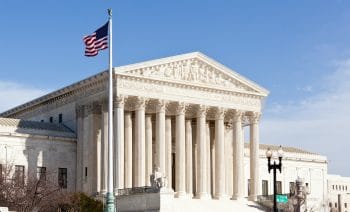
The Supreme Court Spares the Sacklers Another Trial
On December 9, the United States Supreme Court declined to consider a lawsuit against the Sackler family that the State of Arizona presented directly to the nation’s highest tribunal earlier this year. The Sackler family owns Purdue Pharmaceuticals, the manufacturer and vendor of OxyContin. Almost every state and over 2,000 counties and municipalities across the country have sued the Sacklers and Purdue Pharmaceuticals for deceptively marketing OxyContin as safer and less addictive than generic Opioid painkillers. The Sacklers earned billions of dollars in profits from contributing to the Opioid Epidemic, according to the plaintiffs.
Mark Brnovich, the Attorney General of Arizona, accused the Sacklers in July of transferring $4 billion from Purdue Pharmaceuticals to themselves in anticipation that their company would soon be liable to pay heavy damages. Brnovich alleges that the Sacklers have been collecting Purdue money since 2008. By draining their company’s net worth, Brnovich suggests, the Sacklers sought to bolster their personal fortune and reduce the damages their company would eventually be required to pay. Arizona asked the Supreme Court to halt money transfers from Purdue Pharmaceuticals to the Sacklers. The family has denied Brnovich’s allegations as “inconsistent with the factual record.”
In rejecting Arizona’s petition to settle the dispute, the nine Justices of the Supreme Court did not issue a written opinion about the substance of the State’s lawsuit or the Sacklers’ role in fueling the Opioid crisis. Instead, the Supreme Court rejected the case on procedural grounds, as many legal scholars anticipated. Arizona bypassed all state and federal courts to ask the Supreme Court to exercise original jurisdiction over the case in light of the nationwide significance of the issue and the fact that one of the parties is a state. However, the Supreme Court almost exclusively reviews cases on appeal from lower tiers of the judiciary and typically declines to serve as a court of first instance, as Arizona requested.
Responses from the Sacklers and Arizona
In July, lawyers for Purdue Pharmaceuticals called the Supreme Court “an improper forum” for litigating Arizona’s claims against the Sacklers. The Supreme Court itself appears to agree with that position, and a representative for the Sacklers reported that the family is pleased to enjoy a legal victory.
We welcome today’s decision by the Supreme Court. We continue to believe the most effective way to get critical resources to those who need them most is through the bankruptcy process and the proposed settlement that has been supported by 29 states and territories and thousands of municipalities across the country.
Attorney General Brnovich responded by vowing to continue Arizona’s legal fight against the Sacklers. “Today’s ruling will not end our efforts to hold Purdue and the Sacklers accountable for their role in the Opioid crisis,” he said on Monday. “We will continue to fight for Arizona’s interests in the Purdue bankruptcy proceedings.”
Purdue Pharmaceutical’s Settlement Proposal
In September, Purdue Pharmaceuticals filed for bankruptcy protection as part of a settlement with 24 states, five federal territories, and about 2,000 municipalities. The settlement agreement currently awaits approval in federal bankruptcy court, but 26 states oppose the settlement because they want the company to give plaintiffs more money. The Sacklers claim that the total value of the settlement will be $12 billion. However, the states in opposition say the amount will be less and could be more, and accuse the family of attempting to evade responsibility.
Arizona initially supported the settlement, but Brnovich reversed Arizona’s position in October after the opposing states filed a complaint to a federal bankruptcy judge alleging that the Sacklers have actually taken $13 billion from Purdue Pharmaceuticals, more than triple the amount that Arizona reported to the Supreme Court.
The terms of the proposed settlement require the Sackler family to relinquish control of Purdue Pharmaceuticals to a board of trustees and sell Mundipharma, a Purdue subsidiary company. Under bankruptcy protection, Purdue Pharmaceuticals would continue to sell OxyContin to finance damages and donations to thousands of plaintiffs. The company would pay at least $3 billion in damages over the course of several years and donate over $4 billion worth of anti-overdose medication to communities suffering from Opioid addiction.
With the proposed settlement under review, the federal bankruptcy judge ordered a general suspension of all other lawsuits against Purdue Pharmaceuticals. As a result, the company avoided a planned federal trial in Cleveland, Ohio for Opioid manufacturers, which was ultimately cancelled for lack of defendants. Nevertheless, Arizona refused to withdraw its complaint to the Supreme Court.